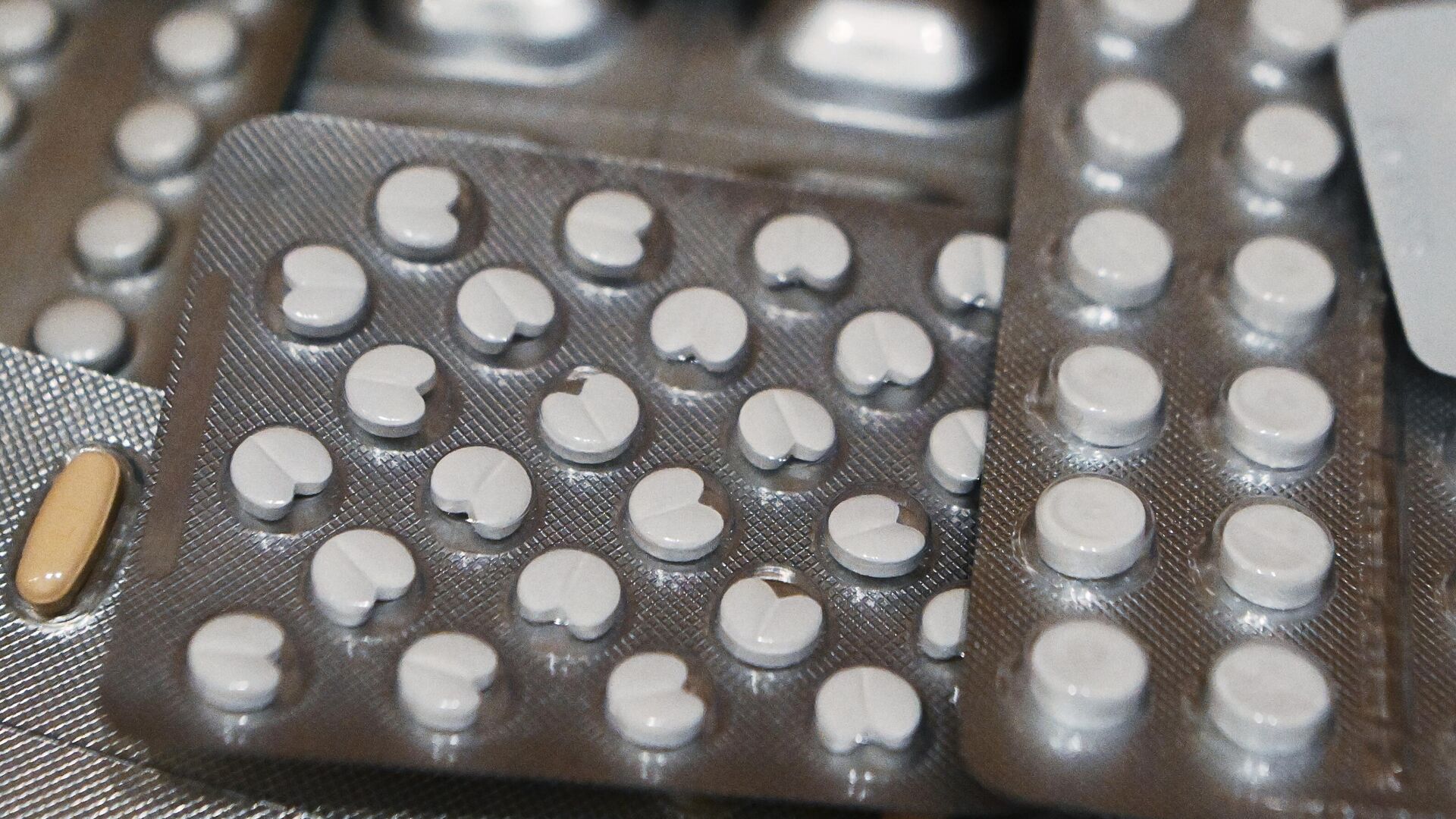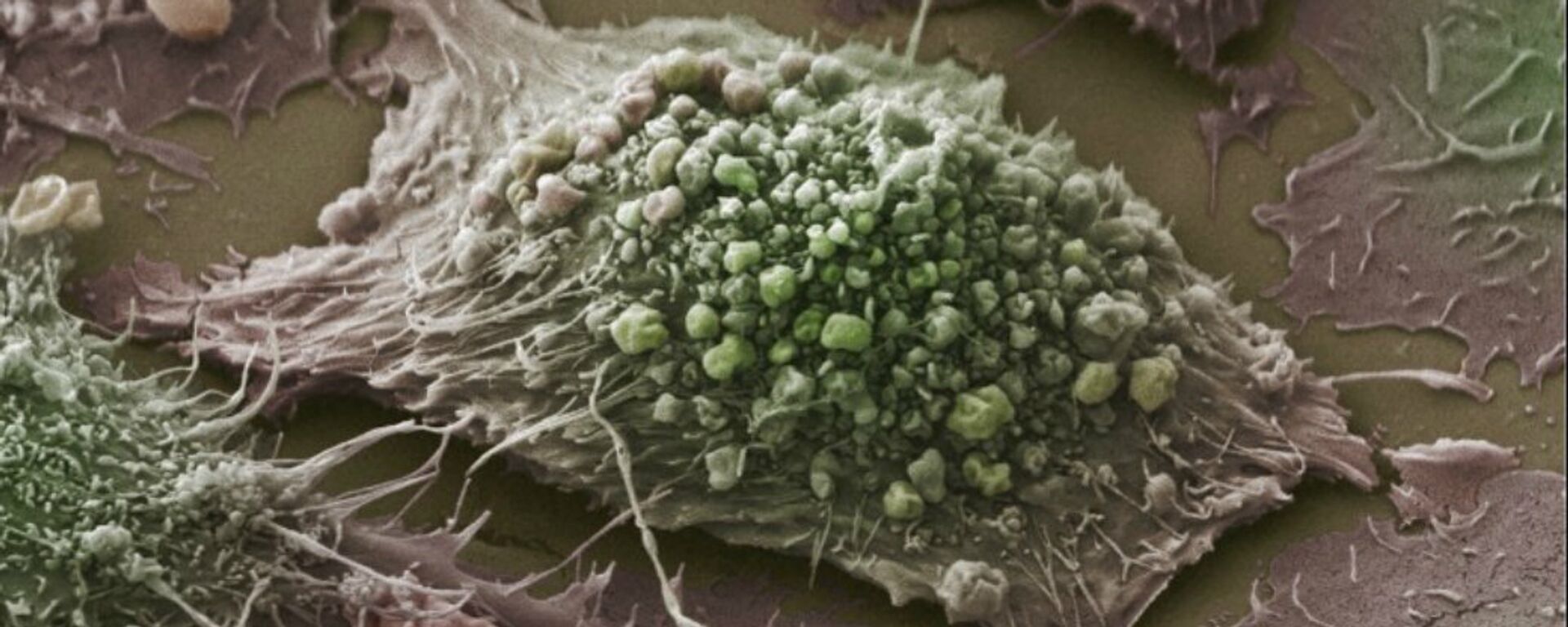https://en.sputniknews.africa/20231124/new-inexpensive-safe--effective-treatment-found-against-deadly-disease-raging-in-sudan-1063769907.html
New Inexpensive, Safe & Effective Treatment Found Against Deadly Disease Raging in Sudan
New Inexpensive, Safe & Effective Treatment Found Against Deadly Disease Raging in Sudan
Sputnik Africa
Mycetoma, according to the WHO, is a chronic, gradually destructive infectious disease of the subcutaneous tissues caused by bacteria or fungi that affects the... 24.11.2023, Sputnik Africa
2023-11-24T17:55+0100
2023-11-24T17:55+0100
2023-11-24T17:55+0100
sudan
east africa
world health organization (who)
rapid support forces (rsf)
conflict
medicine
drugs
treatment
sub-saharan africa
https://cdn1.img.sputniknews.africa/img/07e7/0b/18/1063772586_0:0:3176:1787_1920x0_80_0_0_967a80310ba55660dfa427ad759960be.jpg
A new safe, inexpensive and patient-friendly oral treatment has been proven to be effective against mycetoma, the Drugs for Neglected Diseases Initiative (DNDi), a non-profit drug research and development organization founded by the World Health Organization (WHO) and other research institutes to fight neglected diseases, reported on Thursday.The world’s first double-blind, randomized clinical trial showed that fosravuconazole — an active ingredient that is used in an over-the-counter drug for treating fungal infection — showed efficiency up to 85% which makes it no less effective than itraconazole, a current anti-mycetoma drug.Dr. Borna Nyaoke, the head of mycetoma at the DNDi, called the discovery “momentous” and "a game changer," the media reported.Itraconazole that is currently used to treat mycetoma has several adverse effects and must be taken with food four times a day for a year. A patient's annual treatment costs approximately $2,000 which is quite costly and thus not every country where mycetoma is endemic has access to it.Fosravuconazole, on the contrary, needs to be taken once a week — 28 times less than itraconazole — which makes its intake much more convenient.But these are not all the advantages of the new treatment regimen for the serious illness. Fosravuconazole can be taken regardless of meals, and it barely interacts with other medications.However, the violent clashes that have been happening in Sudan between the Sudanese army and the Rapid Support Forces paramilitary group since April might hinder the efforts of scientists, according to Fahal.It is noteworthy that, according to Nyaoke, Sudan's drug regulator appears poised to approve the medicine for use nationwide, but it is unclear when a decision will be made.The first recorded case of mycetoma was in Madurai, India, in the middle of the 1800s. Now, mycetoma is on the WHO's list of neglected tropical diseases that "cause devastating health, social and economic consequences to more than one billion people."The illness usually affects young adults, mostly men aged between 15 and 30 years, in developing countries, the WHO stated. Moreover, according to the MRC, the children make up around 20-25% of all mycetoma patients.The disease is transmitted through implantation, which means people become infected through thorn pricks while walking barefoot.If left untreated, mycetoma might kill the infected person. Hopefully, a new way of treatment is expected to be able to significantly reduce the number of deaths.
https://en.sputniknews.africa/20231112/1063495926.html
sudan
east africa
Sputnik Africa
feedback@sputniknews.com
+74956456601
MIA „Rossiya Segodnya“
2023
Christina Glazkova
https://cdn1.img.sputniknews.africa/img/07e7/0b/07/1063380906_0:0:673:674_100x100_80_0_0_79628b4d0cd9f29291a57aa13bbf9e7a.jpg
Christina Glazkova
https://cdn1.img.sputniknews.africa/img/07e7/0b/07/1063380906_0:0:673:674_100x100_80_0_0_79628b4d0cd9f29291a57aa13bbf9e7a.jpg
News
en_EN
Sputnik Africa
feedback@sputniknews.com
+74956456601
MIA „Rossiya Segodnya“
Sputnik Africa
feedback@sputniknews.com
+74956456601
MIA „Rossiya Segodnya“
Christina Glazkova
https://cdn1.img.sputniknews.africa/img/07e7/0b/07/1063380906_0:0:673:674_100x100_80_0_0_79628b4d0cd9f29291a57aa13bbf9e7a.jpg
sudan, east africa, world health organization (who), rapid support forces (rsf), conflict, medicine, drugs, treatment
sudan, east africa, world health organization (who), rapid support forces (rsf), conflict, medicine, drugs, treatment
New Inexpensive, Safe & Effective Treatment Found Against Deadly Disease Raging in Sudan
Christina Glazkova
Writer / Editor
Mycetoma, according to the WHO, is a chronic, gradually destructive infectious disease of the subcutaneous tissues caused by bacteria or fungi that affects the skin, deep tissues and bone, resulting in their destruction, deformity and loss of function, which may be lethal. It is endemic in Africa, Asia, Europe and Latin America.
A new safe, inexpensive and patient-friendly oral treatment
has been proven to be effective against mycetoma, the Drugs for Neglected Diseases Initiative (DNDi), a non-profit drug research and development organization founded by the World Health Organization (WHO) and other research institutes to fight neglected diseases, reported on Thursday.
The world’s first double-blind, randomized clinical trial showed that fosravuconazole — an active ingredient that is used in an over-the-counter drug for treating fungal infection — showed efficiency up to 85% which makes it no less effective than itraconazole, a current anti-mycetoma drug.
The clinical trial took place in Sudan — a country that, together with Mexico, has reported the highest number of cases in the world, according to the DNDi. The trial was coordinated by the DNDi, Japanese pharmaceutical company Eisai and the Mycetoma Research Center (MRC). The latter was established in 1991 in Sudan and "is one of the world’s leading centers on research and management for mycetoma," the DNDi said.
Dr. Borna Nyaoke, the head of mycetoma at the DNDi, called the discovery “momentous” and "a
game changer," the media reported.
Itraconazole that is currently used to treat mycetoma has several adverse effects and must be taken with food four times a day for a year. A patient's annual treatment costs approximately $2,000 which is quite costly and thus not every country where mycetoma is endemic has access to it.
Fosravuconazole, on the contrary, needs to be taken once a week — 28 times less than itraconazole — which makes its intake much more convenient.
"Only two pills of fosravuconazole need to be taken once a week, compared to four tablets per day for itraconazole. This reduces the pill burden for patients significantly, with only eight tablets per month versus the current 120 tablets per month. This will greatly improve adherence and convenience for patients," said MRC Director Professor Ahmed Fahal in the DNDi's statement.
But these are not all the advantages of the new treatment regimen for the
serious illness. Fosravuconazole can be taken regardless of meals, and it barely interacts with other medications.
"It has no food effect, so patients do not have to worry about taking it before or after a meal. The drug also has minimal interactions with other medications, which is particularly important for the sub-Saharan population that may suffer from comorbidities like HIV or tuberculosis and may be taking multiple drug combinations. All this makes fosravuconazole an attractive alternative treatment option for mycetoma," Nyaoke said in the statement.
However, the
violent clashes that have been happening in Sudan between the Sudanese army and the Rapid Support Forces paramilitary group since April might hinder the efforts of scientists, according to Fahal.
"The war had a lot of impact in Sudan in general as well as on the mycetoma center and on patients. It affected our work; staff have fled and are traumatized. The war has definitely moved us backwards," Fatal told the media.
It is noteworthy that, according to Nyaoke, Sudan's drug regulator appears poised to approve the medicine for use nationwide, but it is unclear when a decision will be made.
The first recorded case of mycetoma was in Madurai, India, in the middle of the 1800s. Now, mycetoma is on the WHO's list of
neglected tropical diseases that "cause devastating health, social and economic consequences to more than one billion people."
The illness usually affects young adults, mostly men aged between 15 and 30 years, in developing countries, the WHO
stated. Moreover, according to the MRC, the children make up around 20-25% of all mycetoma patients.
The
disease is transmitted through implantation, which means people become infected through thorn pricks while walking barefoot.
If left untreated, mycetoma might kill the infected person. Hopefully, a new way of treatment is expected to be able to significantly reduce the number of deaths.



